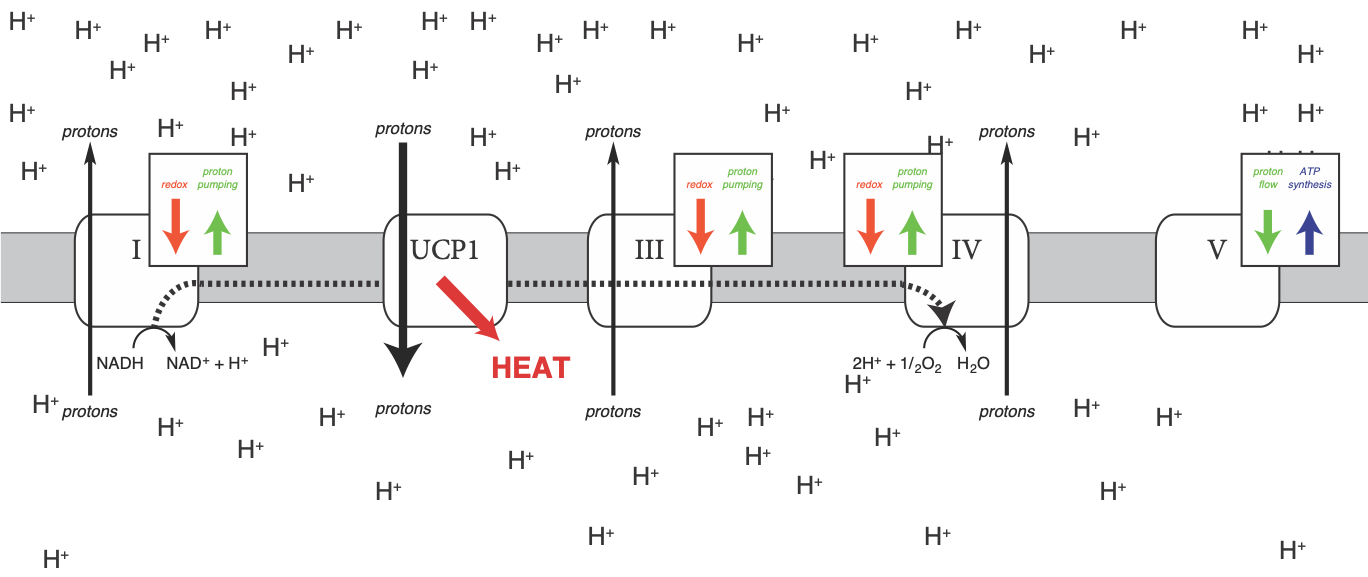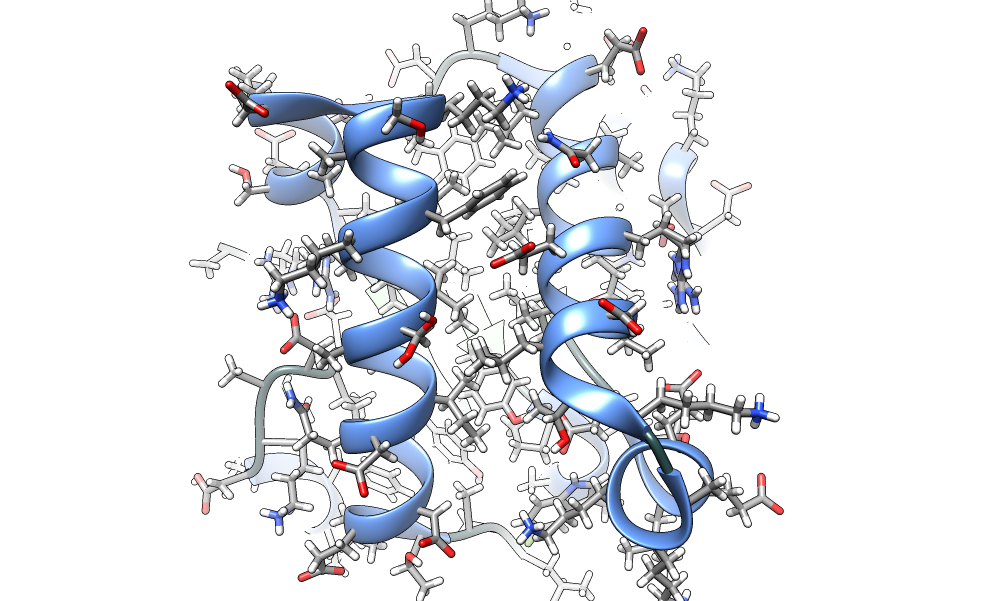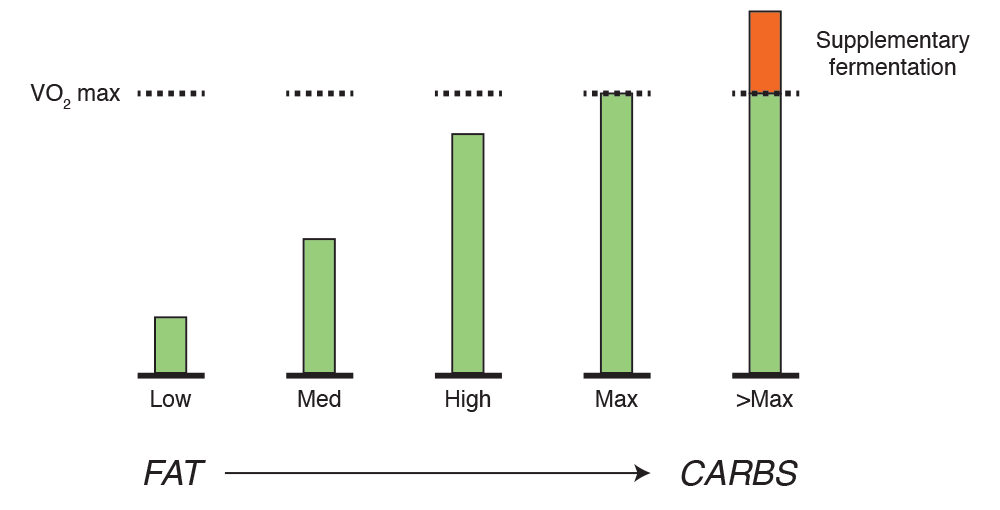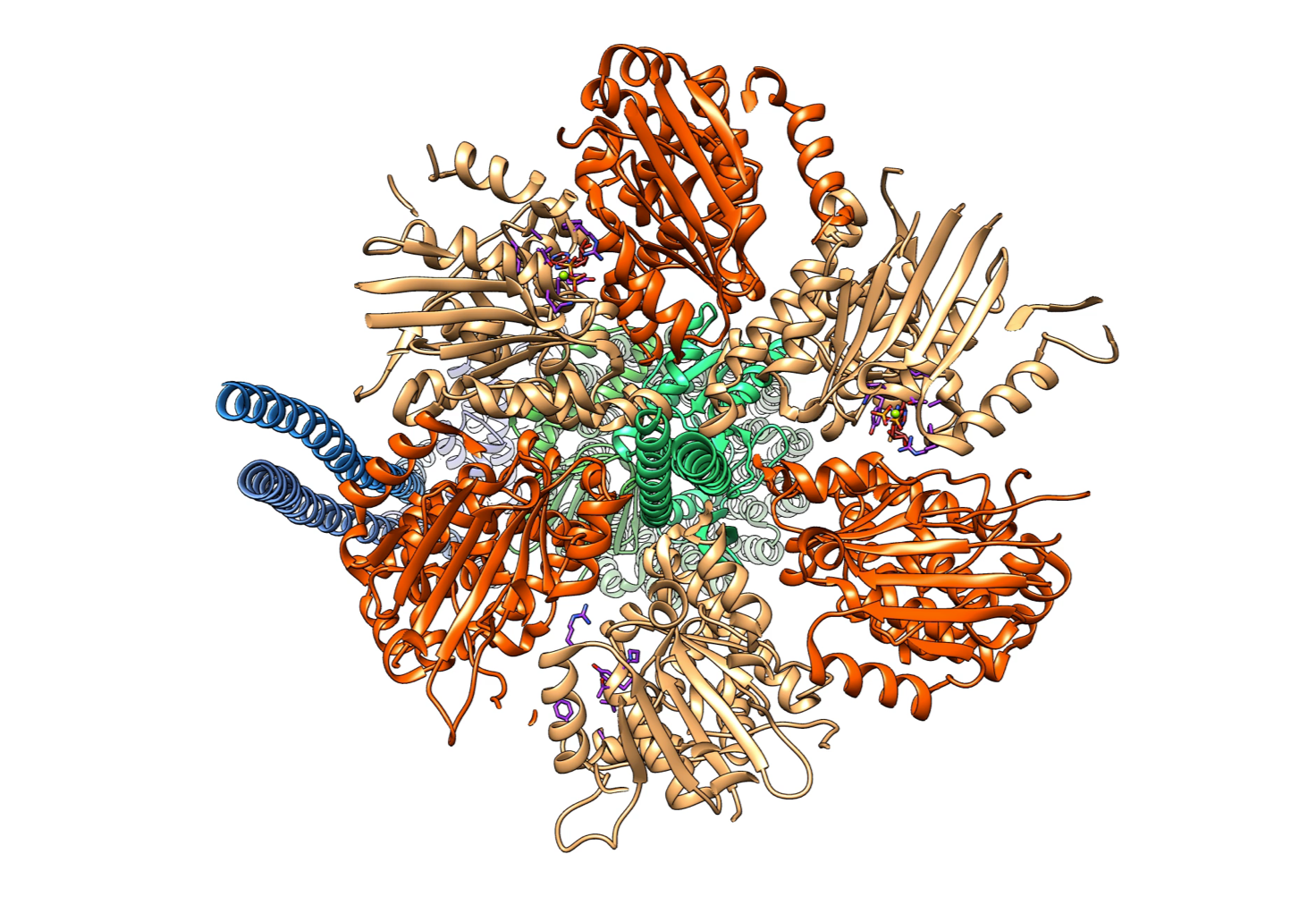Biochem 301 is Duke’s main introductory course in biochemistry. If you’re a Duke undergraduate interested in learning about biochemistry—or if you need to take a biochemistry course as a requirement for medical, dental, veterinary, or graduate school—this is the correct course to take to get started.
What is biochemistry about?
As the name suggests, biochemistry is the study of the chemistry of life. Biochemists examine the chemical structures that make up organisms and how those structures are built, the atomic-level physics governing the actions and interactions of biological molecules, the molecular bases of genetic information storage and transmission, the processes by which organisms obtain and utilize energy, the microscopic mechanisms of communication that connect the components of a cell and the cells of a body, and the molecular activities underlying large-scale biological functions like cell locomotion and animal physiology, among other things. Biochemists research the most fundamental principles behind life, and apply what they learn in many disciplines: the understanding of human function and disease in medicine; the development of new therapeutics to treat disease in the pharmaceutical and biotech industries; comparison of functioning across the kingdoms of life as part of the study of fundamental biology; and even in the kitchen, in studying and improving the processes of cooking!

What are the objectives of Biochem 301?
The purpose of Biochem 301 is to teach students how to apply the principles of chemistry to understand the functioning of biological systems, and to introduce students to some of the most important chemical systems in organisms. The goal is to develop mental models of how these systems work, which will enable students to predict the behavior of these systems in various practical situations both of normal function and of disease. It will also prepare students to learn quickly about other biochemical systems in the future.
Because most of the students in the class are preparing for medical school or other health professions careers, the course focuses primarily on human systems. However, plant and microbial examples are discussed from time to time, and the course is good preparation for students interested in any kind of molecular-level biological research. Applications to clinical medicine, to pharmaceuticals and biotech, to nutrition, and to food science are regularly featured. The course is designed to cover everything needed for the biochemistry section of the MCAT, and Biochem 301 students have a track record of excellent MCAT performance.
“I just wanted to let you know that I had gotten…a perfect 132 in the Bio/Biochem section [of the MCAT]! Taking your class last semester provided such a strong and thorough foundation and really helped me go into the exam confident with the material…” -L.L.
“I took your biochemistry class last semester and studied for the MCAT over winter break. I recently found out that my score was in the 99th percentile, and I scored near perfect on the biochemistry sections. Biochemistry happens to be the most tested topic on the MCAT, but I didn’t even have to study much for it thanks to [Biochem 301]…” -N.I.

What preparations and prerequisites are needed before taking Biochem 301?
The official prerequisites for the course are two semesters of organic chemistry (and by extension, the one semester of general chemistry Duke requires before organic).
Students who have taken these courses and done well in them will generally do fine in Biochem 301, even if it has been a few years since one’s last chemistry course. We review many of the key ideas from general chemistry, especially thermodynamics, kinetics, and acid/base chemistry. We also review some ideas from organic, but it is more critical for students to come into biochemistry with a good grasp of organic concepts, since we must apply them extensively at the beginning of the course. If you are considering taking the course and organic is a concern, please reach out to learn about recommended resources for refreshing one’s knowledge. It is more important to understand the ideas of organic than to have memorized names of reactions, so the resources we would recommend are mainly focused on gaining a clear sense of the principles of structure, reactivity, and mechanism.

Students sometimes ask if it is possible to take Biochem 301 with only one semester of organic. It is possible to do so, and sometimes works out just fine, but it has also sometimes turned out very badly. If you are considering this, please reach out to discuss further.
Though we do not list biology as an official prerequisite, it is also helpful to have some background in cell and molecular biology before taking Biochem 301, so we would recommend taking Biology 201 before or concurrently with biochemistry if possible.

Other classes that can be helpful—but are certainly not necessary!—would include physical chemistry (Chem 301), the second semester of general chemistry (Chem 210), cell biology (Bio 220), and introductory physics (Physics 141 and 142). These courses provide additional context for appreciating some aspects of Biochem 301.
Courses in physiology and neuroscience often work well taken at the same time as biochem, or afterwards.
What topics does the course cover?
The first third of Biochem 301 is devoted to understanding how organisms are able to carry out organic chemical reactions efficiently, specifically, and under precise control. This part of the course examines the structures and chemistry of biological molecules, and the principles of enzyme-catalyzed reaction mechanisms. Understanding protein structure is a part of this, but the most significant goal is to develop a strong intuition about how the most common biochemical reactions occur. With this intuition, one can not only predict reaction mechanisms for unfamiliar reactions, but also predict products and analyze the structures of metabolic pathways. This part of the course also introduces enzyme kinetics, the study of how reaction rates are connected to the energetics of the reaction mechanism, and kinetics in turn allows for learning about the selective pressures on enzyme evolution, how enzymes are regulated within organisms, and how enzymes are modulated by pharmaceuticals.
The remainder of the course examines human metabolism, with a particular view towards how the human body obtains, stores, and utilizes energy. Key metabolic pathways are examined in depth in order to understand the principles of metabolism; these ideas are then applied more broadly to look at many more pathways in the metabolic network. The goal is to develop a working model of the human metabolic system, sufficient to be able to make hypotheses about nutrition, disease states, medical interventions, and daily activities such as exercise. The course ends with a survey of some physiology from a biochemical perspective.

A number of important biochemical topics are not included, in particular nucleic acids and molecular genetics (which are taught extensively in other Duke courses). Biochem 301 does cover all topics that are expected for the biochemistry section of the MCAT.
How is the class structured?
Course meetings are held on Mondays, Wednesdays, and Fridays, and involve lecture with a good bit of discussion folded in. Depending on how the course progresses, a few class sessions may be devoted entirely to discussion, student presentations, and/or presentations by the graduate TAs.
In addition to the course meetings, we work with Duke’s Academic Resource Center to organize optional small learning communities (discussion groups) that meet at mutually convenient times during the week, led by undergraduate peer facilitators. These learning communities review content and work through problems that are designed to help elucidate the more difficult concepts. Discussion problems and activities are the basis for extra-credit opportunities in which small groups make presentations to the class.
How is the class graded?
75% of the grade is based on exams, and 25% on quizzes.
There are three exams, two midterms and a final. Though it will be necessary to learn (memorize) some course material in preparation for these exams, the main focus of the exams will be on analysis, application, and interpretation. Exam questions frequently require drawings and/or short essays.
Multiple-choice open-note online quizzes are held each week in Sakai, covering recent material. Quizzes are designed to help students identify weak areas of understanding, in order to guide further studying.
Extra credit is available for students who participate in class presentations and for students who are active on the course’s online discussion forum.
The course is not curved, but rather grades are determined against a fixed standard. If everyone masters the material, then everyone gets an A; if nobody masters the material, then nobody gets an A.

Is the course hard?
Most students find that biochemistry requires work, but that the concepts taught in this class make it pretty easily comprehensible. There is a large amount of material, and regular studying is needed in order to stay on top of the content. It is essential to work through the practice problems and discussion problems, so that one gets practice applying the concepts. However, almost all students who spend time regularly thinking about the ideas and practicing their application do well in the course.
Biochem classes are notorious for requiring large amounts of memorization, but in this class the focus is less on memorization and more on understanding. Of course, one cannot truly understand a system without knowing the parts of the system and how they work together, so it will be necessary to learn at least some of the facts by heart. But the more important point is to understand the system, and as this former student notes, doing so can have a big payoff not just in the class but beyond:
“I took your Biochemistry class last semester and really loved it. I also just took the MCAT and was so thankful for the way you taught the class and pushed us to truly understand the material rather than just memorizing the structures.” –P.F.
Is the course interesting? Is it fun?
Yes! Biochem is both interesting and fun, as students consistently tell us:
“After taking your 301 class this semester, I have discovered a passion for biochemistry that I didn’t know I had.” –J.P.
“Before starting the course, I was unsure if I was going to enjoy biochemistry…now I find myself talking about biochemistry all the time!” –S.O.
“I took your biochemistry course last Fall and it still stands as my favorite class I’ve taken at Duke thus far.” –T.B.
“I took Biochem 301 with you Fall semester of 2019. It is one of my favorite classes I’ve taken at Duke.” –S.V.
“In my experience at Duke, this was the most interesting course I have taken. I learned more than I have in any other course during my entire academic career, and have developed a true passion for biochemistry as a result of taking your course. This is the first course that inspired a true desire to genuinely learn more within me, and frames my day-to-day thinking and understanding of science.” –A.B.
Biochem 301 is the course that connects together everything you have learned about science and applies it to daily life. We start with fundamental ideas of thermodynamics, kinetics, molecular structure, and reaction mechanisms and apply these to understand what makes a keto diet so different from a regular diet, why marathon runners “hit the wall” and how to keep going longer, why heart attack patients often suffer further damage after the restoration of oxygen to the damaged part of the heart, the role of enzyme denaturation temperature in successfully homebrewing beer, how immune cells use oxygen radicals to kill invaders, why eating raw eggs can cause vitamin deficiencies, how soil microbes have modified a normal metabolic pathway to make deadly poisons that will kill their neighbors, why mustard helps to keep homemade salad dressings from separating, what it means to be “prediabetic” and how to reverse the disease, why vegans need vitamin B12 supplements, and so much more.

What is different between the summer version of Biochem 301 and the versions offered in the Fall and Spring Semesters?
We offer Biochem 301 every semester: Fall, Spring, and during the first term of the Summer Session. The summer course covers the same topics and ideas as the regular semester courses, and is structured very similarly. The biggest difference is that the summer course happens in only six weeks, which means that it is a very intense experience. Class meets every weekday. Exams happen every other week, there are multiple quizzes per week, and there are two discussions per week. It is truly an immersion course!
Because of the intense pace, students taking biochem in the summer do best and get the most from it when they are not too busy with other activities. Taking more than one summer course at a time can be extremely challenging and is not recommended. Many students work in a research lab at the same time as taking summer biochem, and that usually works out just fine, but students should discuss schedules with their PIs and ensure that there is enough time each week for class, discussions, studying, and assignments.
We find that students taking the course in the regular semester usually develop a deeper understanding of the subject than those taking it in the summer; the summer goes so fast that it is hard to catch every subtlety. That said, students who do well in the summer course do fine in the future studies, so it’s probably not a significant loss.

How can I learn more about the course?
Take a look at the syllabus from the most recent regular semester course: Spring 2022 Syllabus.
Take a look at the syllabus from the most recent summer: Summer 2021 Syllabus.